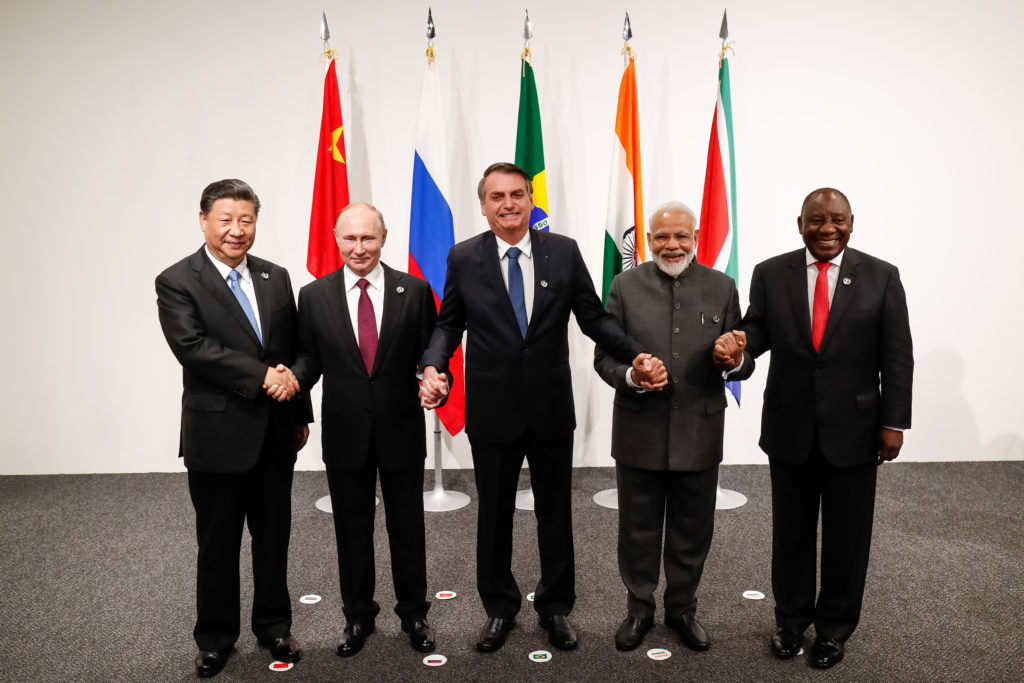The BRICS Summit is taking place in Xiamen, China, this week and is sure to be a historical event. The five countries represented at the summit – Brazil, Russia, India, China, and South Africa – account for 42% of the world’s population and a quarter of the global economy. This year’s summit is especially important for Russia as it looks to strengthen ties with its partners amid increasing sanctions from the West.

What is the meaning of the BRICS acronym, and how did it originate?
BRICS is an acronym associated with the five major emerging economies: Brazil, Russia, India, China, and South Africa.
The term “BRIC” was used in 2001 by Jim O’Neill, the then-chairman of Goldman Sachs Asset Management. But it originated by Roopa Purushothaman, a Research Assistant in the original report.
The foreign ministers of Brazil, Russia, India, and China met in New York City in September 2006 to discuss important matters. On June 16, 2009, a diplomatic meeting took place in Yekaterinburg, Russia. In 2010, South Africa began the process of becoming a member nation of the BRIC grouping. This process was completed on December 24, 2010, when South Africa became an official member.
BRICS Summit
The 14th BRICS summit will take place in China on June 23-24. The member nations will review the current global situation and reach key agreements during the summit. For the third year in a row, discussions will be held entirely online. The last two were during Covid’s epidemic.
Vladimir Putin will speak at a session with the leaders of several invited countries on June 24. BRICS Plus is a new phase of BRICS that includes more countries and aims to improve economic conditions.
The Ukraine conflict will be a major topic at this year’s summit. However, this will most likely be discussed behind closed doors.
Pratyush Rao, the director for South Asia at the Control Risks consultancy, says Ukraine will be the elephant in the room. “Many people will watch the summit, especially the relationship between Russia and China concerning Ukraine.”
China has been more vocal about backing Russia’s involvement in Ukraine over the past few months, while India, South Africa, and Brazil have taken a step back. They have not condemned Russia, but they have called for peace talks.
The 2014 annexation of Crimea and the ensuing war in Ukraine have led to Western sanctions against Russia. These have hit Russia’s economy hard. Russia’s Finance Minister Anton Siluanov has asked the BRICS group to use their currencies for trade settlements instead of the US dollar. Siluanov said, “The current crisis is man-made, and the BRICS countries have all necessary tools to lessen the effects of the crisis for their economies and the global economy as a whole.”
The western sanctions have had a global impact, with inflation reaching unprecedented heights across Europe. The global supply chain has also been disrupted, with concerns about food shortages growing more serious.
Some people say that Brics has not done well over the years. The BRICs were created in 2009 to revise the global economy and assist developing nations, but their effectiveness often tends to punch below its weight. Their importance should not be overlooked. The BRICS nations have a combined population of 3.23 billion, and their combined GDP is more than $23tn.
The BRICS countries are committed to working together to find answers to the world’s most pressing problems. The talks will undoubtedly include multilateral reform, combating the COVID-19 epidemic, and worldwide economic recovery, among others. The BRICS Summit is an event that cannot be ignored.







































